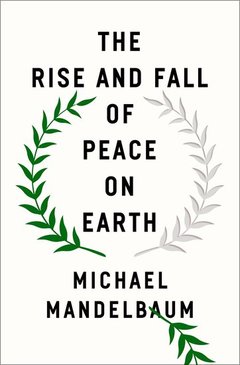Description
The Rise and Fall of Peace on Earth
Author: Mandelbaum Michael
Language: English
Subject for The Rise and Fall of Peace on Earth:
Publication date: 05-2019
232 p. · 16.4x24.3 cm · Hardback
232 p. · 16.4x24.3 cm · Hardback
Description
/li>Biography
/li>
In the twenty-five years after 1989 the world enjoyed the deepest peace in its history. The Rise and Fall of Peace on Earth examines that singular quarter century, describing how and why peace was established and then fell apart. Mandelbaum argues that peace ended because three important countries - Vladimir Putin's Russia in Europe, Xi Jinping's China in East Asia, and the Shia clerics' Iran in the Middle East - put an end to it with aggressive nationalist policies aimed at overturning the prevailing political arrangements in their respective regions. The three had a common motive: a dictatorial regime's need to survive in a democratic age with their prospects for economic growth uncertain. Mandelbaum further argues that the key to a return of peace lies in the advent of genuine democracy, including free elections and the protection of religious, economic, and political liberty. Since democracy cannot be imposed from the outside, The Rise and Fall of Peace on Earth has a dual message: the world has a formula for peace, but there is no way to ensure that all countries embrace it.
Michael Mandelbaum is the Christian A. Herter Professor Emeritus of American Foreign Policy at The Johns Hopkins School of Advanced International Studies and the author of sixteen books, including Mission Failure (Oxford), The Ideas That Conquered the World, The Meaning of Sports, The Frugal Superpower, and That Used To Be Us (with Thomas L. Friedman).
© 2024 LAVOISIER S.A.S.

